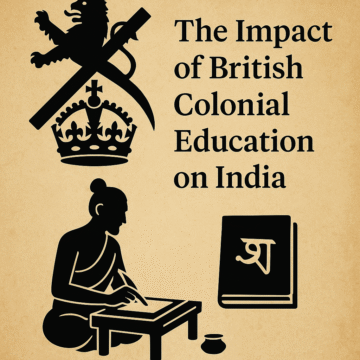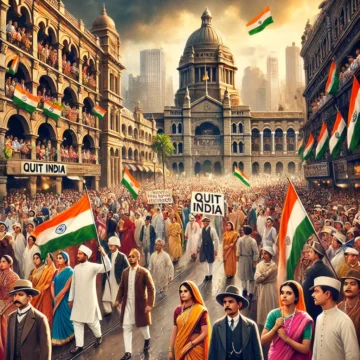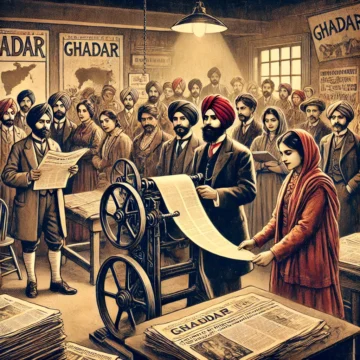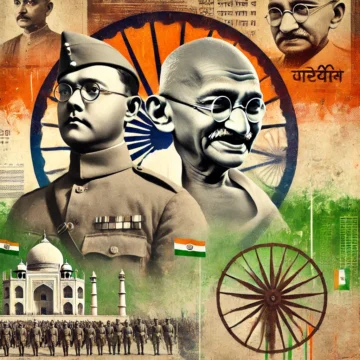British rule in India was more than economic exploitation—it was cultural genocide. Through Macaulay’s education policy, caste codification, missionary propaganda, and historical distortion, the British dismantled India’s civilizational memory. This blog uncovers how they replaced Gurukuls with colonial schools, suppressed Ayurveda, and divided society—leaving a legacy of mental colonization that still lingers.
Tag: British rule
Royal Navy Revolt Mumbai: The Fire for Indian Independence
Exploring the pivotal Royal Navy Revolt Mumbai of 1945, this blog delves into the critical yet often overlooked catalyst that swayed India's struggle towards independence. Unlike popular belief, it wasn't solely Gandhi's non-violence but also this armed defiance that hastened the end of British rule in India.
Poona Pact: Colonial Legacies and Enduring Divisions in Hindu Society
The Poona Pact of 1932, brokered amidst India's freedom struggle, was a crucial agreement between Gandhi and Ambedkar under British colonial influence. It aimed to preserve Hindu unity while addressing caste disparities, setting a stage for future social reforms and the ongoing discourse on affirmative action and equality in modern India.
India’s Freedom Struggle Efforts and Quit India Movement-III
In this detailed analysis, we explore the Quit India Movement of 1942—a pivotal uprising in India's fight for independence. Initiated by Gandhi amidst World War II pressures, this movement marked a drastic shift from previous resistance strategies, ushering a more direct confrontation against British rule and catalyzing a nationwide push for sovereignty.
Indian Freedom Struggle and Formation of Ghadar Party
Explore the Ghadar Party's foundational role in the Indian freedom struggle, established in 1913 by expatriates in San Francisco. This post delves into their radical approach to overthrow British rule, influenced by the discriminatory experiences faced by Indian immigrants in North America and their fierce desire to liberate their homeland.
Subhash Chandra Bose: Contrasting Strategies with Gandhi
Explore the profound contrasts between Subhash Chandra Bose's militant tactics and Mahatma Gandhi's non-violent strategies in the fight for Indian independence. This blog delves into how their ideological differences influenced the movement's trajectory, offering insights into their leadership roles and the lasting impact of their divergent approaches on India's path to freedom.







